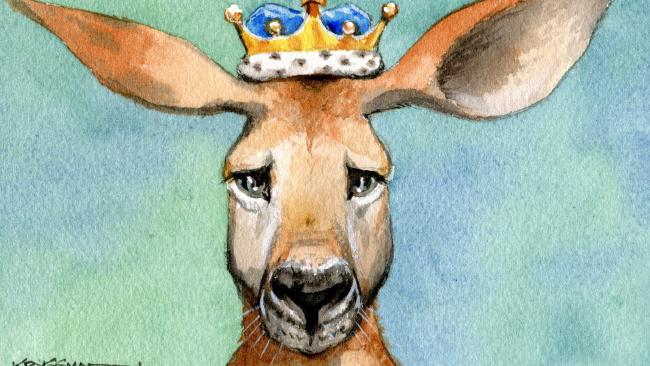On 1 January 1901, Australia became a nation as a result of intense debate and a referendum. We have continued to shape our own unique identity; forging a path that started with Indigenous culture and continuing into, what looks like, an increasingly global present and future. We have constructed our own story, culture, alliances and partnerships – cementing Australia as a leader and important actor not only in the region but the global stage. So why is our head of state still the British Queen?
We have not had a prolonged debate on this topic since the referendum of 1999, but the time has come again for Australians to discuss the next fundamental step in our future.
It is clear why the British Royal family became our head of state after Federation. Our judicial and parliamentary systems are near replications of those constructed by the British, and most Australians still regarded themselves as British to some degree. But this is no longer true. In the World Wars, we entered as Australians and faced the dangers that threatened the globe. As ANZACs, we fought on the beaches of the Dardanelles, at Gallipoli. We marched up the Kokoda Track and protected our nation and neighbours from invasion alongside the United States. Inside our region, we’ve played an active role in stabilising and aiding our neighbours. And today we stand on the world stage as strong campaigners of liberal democracy and global order, fighting for ideals that even some of our closest allies seem to have rejected, such as free trade and action on climate change. So again, why do we have to swear allegiance to the monarch of a distant country?
What role does a monarch play in modern Australia? In regard to governance, none. But the extended royal family do sell magazines and provide fodder for the gossip columns. The head of state is a token figurehead, so let’s change this position. Let’s give it to someone who will represent Australia properly at home and abroad; someone who will genuinely represent all our diverse voices in a way that the British monarch never could. Instead, we are wasting the culturally valuable position of head of state. The only way to remedy this is to install an Australian head of state. One can merely turn to the citizenship controversies occurring in Parliament House right now to further strengthen this point. If members of Parliament aren’t allowed to be dual citizens, why should our head of state be a citizen of a foreign country? And furthermore, why should these people who were elected to represent us, be forced swear allegiance to a foreign leader before being allowed to serve?
Furthermore, our devotion to the British Monarchy is repugnant to our democratic values. It should never be someone’s birthright to govern Australia. We have removed the pedestal from royalty that for centuries wielded power based purely on bloodlines. How can we call ourselves a democracy when the highest office is never elected? Every child in Australia should grow up to believe they could be our head of state – not a prime minister, a so-called ‘representative’ of the Queen, but a president, a sole head of the executive arm of government, who represents the sovereignty of a state. Imagine a future where an Indigenous Elder could sit in that chair.
As in any debate, there are obviously dissenting opinions. One such popular criticism is that it would degrade our relationship with the UK. Becoming a republic would not result in a complete severance of ties between Australia and the UK, but we would remain close allies. An example includes Canada, an independent nation which is still part of the Commonwealth, and have had more royal visits than Australia, yet the head of state is the president.
Another frequent argument relied upon by monarchists is that the government should be more focused on fixing important issues at home before worrying about something ‘trivial’ like becoming a republic. However, this assumes that the government is only capable of a singular or narrow focus when, in reality, it is a wide-ranging team capable of tackling many complex issues at a single time. And while a referendum may be costly, the benefits it will award this country once passed outweigh this cost.
It would be an oversight to not mention the failed republican referendum of 1999 in this piece. It is often used to explain why another referendum isn’t necessary; that it wasn’t important to Australians then and it isn’t important now. This wasn’t the case; Australians voted no to a model of republicanism that was wildly unpopular, since it was cynically designed to fail by politicians such as John Howard, and was not an accurate depiction of what Australian society actually believed. To justly find out what the public wants, a proper public debate must be held, with the only true way of gauging its success being another referendum in its aftermath.
Overall, Australia has changed since Federation. We have matured and no longer need an out-of-touch monarch on the opposite side of the globe looking after us. British colonisation will always be a significant factor in Australia’s history, but that is where it must remain – history. Australia had civilisations long before the British and will continue to do so without their influence. We may be a multicultural nation, filled with many voices from many cultures, but we all speak as Australians. It is time that our head of state does as well.
We acknowledge the Ngunnawal and Ngambri people, who are the Traditional Custodians of the land on which Woroni, Woroni Radio and Woroni TV are created, edited, published, printed and distributed. We pay our respects to Elders past and present. We acknowledge that the name Woroni was taken from the Wadi Wadi Nation without permission, and we are striving to do better for future reconciliation.
